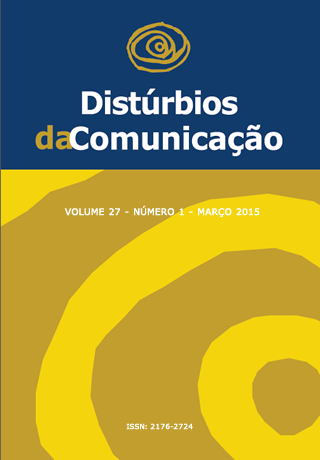Grupo Terapêutico no contexto das afasias
Palavras-chave:
Fonoaudiologia, Afasia, Grupo TerapêuticoResumo
A pesquisa sobre terapia em grupo iniciou-se no final do século passado. Os estudos apontam a interação entre os afásicos como importante para o processo terapêutico. O objetivo desse artigo é discutir a especificidade dos fatores que influenciam a constituição de um grupo nas afasias. Para tanto, tomarei como objeto de análise o grupo de afásicos da Universidade Tuiuti do Paraná durante o período de três anos. Esse grupo é constituído por nove afásicos e as práticas são realizadas a partir de uma perspectiva enunciativo-discursiva. Essa perspectiva é baseada em uma abordagem histórico-cultural. As sessões foram todas transcritas para a análise. Os resultados apontam que a constituição do grupo e a participação dos sujeitos no grupo estão diretamente relacionadas a vários fatores: aos lugares sociais, à relação linguagem/sujeito/sintoma, às práticas discursivas dentro e fora do grupo, às imagens construídas pelos sujeitos do discurso e ao papel do grupo para cada sujeito. Conclui-se, assim, que o processo terapêutico deve incidir sobre todos esses aspectos para que se possa dar conta das multifacetas da linguagem: o biológico, o interativo, o subjetivo e o social.
Downloads
Métricas
Downloads
Publicado
Edição
Seção
Licença
Copyright (c) 2015 Ana Paula Santana

Este trabalho está licenciado sob uma licença Creative Commons Attribution 4.0 International License.









